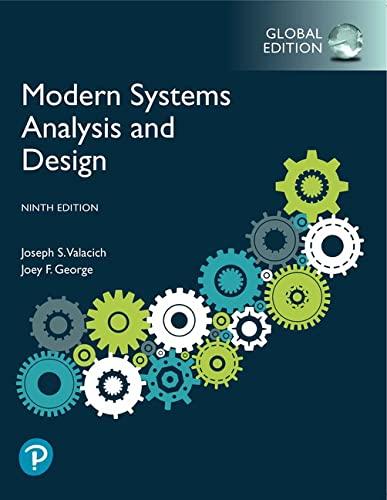Match each of the key terms above to the definition that best fits it. Representational State Transfer
Question:
Match each of the key terms above to the definition that best fits it.
Representational State Transfer (REST)
____ The cabling, hardware, and software used to connect workstations, computers, and file servers located in a confined geographical area (typically within one building or campus).
____ A software emulation of a physical computer system, both hardware and operating system, that allows more efficient sharing of physical hardware resources.
____ A device that manages file operations and is shared by each client PC attached to a LAN.
____ A cloud computing model in which a service provider offers applications via a cloud infrastructure.
____ A LAN-based computing environment in which a central database server or engine performs all database commands sent to it from client workstations, and application programs on each client concentrate on user interface functions.
____ The (back-end) portion of the client/sever database system running on the server that provides database processing and shared access functions.
____ The (front-end) portion of the client/server database system that provides the user interface and data manipulation functions.
____ Software building blocks that are used to ensure that common system capabilities, such as user interfaces and printing, and modules are standardized to facilitate the data exchange between clients and servers.
____ A combination of hardware, software, and communication technologies that brings together data management, presentation, and analysis into a three-tiered (or n-tiered) client/server environment.
____ A cloud computing model in which the customer can run his or her own applications that are typically designed using tools provided by the service provider; the customer has limited or no control over the underlying infrastructure.
____ A cloud computing model in which only the basic capabilities of processing, storage, and networking are provided.
____ A relatively simple and fast protocol for communicating JSON data between Web service applications and the operating system.
____ A method for translating Internet domain names into Internet Protocol (IP) addresses.
____ A communications protocol for exchanging information on the Internet.
____ The standard language for representing content on the Web through the use of hundreds of command tags.
____ An Internet authoring language that allows designers to create customized tags, enabling the definition, transmission, validation, and interpretation of data between applications.
____ A protocol for communicating XML data between Web service applications and the operating system.
____ A client device designed so that most processing and data storage occur on the server.
____ A set of style rules that tell a Web browser how to present a document.
____ A specification for separating style from content when generating XML pages.
____ Providing Internet content to users based upon knowledge of that customer.
____ Internet sites that allow users to customize information to their personal preferences.
____ A computing server where data analysis functions primarily reside.
____ Advanced client/server architectures in which there are three logical and distinct applications—data management, presentation, and analysis—that are combined to create a single information system.
____ A lightweight data interchange approach that is relatively easy for humans to understand and for computers to generate or interpret.
____ A special type of software application for collecting, organizing, and publishing Website content.
____ A method of communication between two electronic devices over a network.
____ A form of on-demand computing where resources in terms of processing, data storage, or networking are rented on an as-needed basis. The organization only pays for the services
used.
____ A software architecture in which business processes are broken down into individual components (or services) that are designed to achieve the desired results for the service consumer
(which can be either an application, another service, or a person).
____ The act of creating virtual (rather than physical) versions of a variety of computing capabilities including hardware platforms, operating systems, storage devices, and
networks.
____ The hardware, software, data, facilities, human resources, and services used by organizations to support their decision making, business processes, and competitive strategy.
Step by Step Answer:

Modern Systems Analysis And Design
ISBN: 9781292351629
9th Global Edition
Authors: Joe Valacich, Joey George





